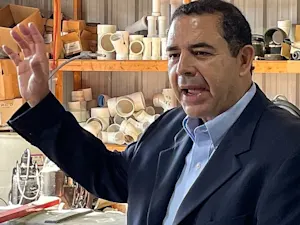
Trump Claims Coca-Cola Is Switching to Real Cane Sugar
President Donald Trump has once again grabbed headlines, this time reportedly claiming he personally convinced Coca-Cola to introduce a new version of its soda made with real cane sugar in the US. Announced on his Truth Social platform in mid-July 2025, Trump framed this development as part of his "Make America Healthy Again" social movement, aligned with Health and Human Services Secretary Robert F. Kennedy Jr., which advocates for cleaner, more natural ingredients in American food products. But is this a genuine shift in Coca-Cola's flagship recipe or a strategic product expansion? The answer is more nuanced than it first appears.
Trump's Claim: Cane Sugar Is Making a Comeback
In a post on Truth Social, Trump declared that after discussions with Coca-Cola executives, the company had agreed to use "REAL Cane Sugar" in Coke sold in the US, as reported by The Hill. He praised Coca-Cola's leadership and said the move "will be a very good move by them," adding that "it's just better!" This announcement was presented as a win for consumers seeking more natural ingredients and a healthier product option.
The claim taps into a growing consumer demand for products perceived as less processed and more authentic. Cane sugar, often viewed as a traditional sweetener, contrasts with high-fructose corn syrup (HFCS), which has been the standard sweetener in American sodas since the 1980s. Trump's announcement suggested a dramatic shift in ingredient politics, positioning cane sugar as a superior alternative.
Coca-Cola's Response: New Product, Not a Recipe Overhaul
Despite Trump's confident announcement, Coca-Cola has clarified that the classic Coke recipe will not be changing. Instead, the company plans to launch a new product in the fall made with US cane sugar, designed to complement its existing portfolio rather than replace the iconic formula. According to CNN, CEO James Quincey explained that some Coca-Cola beverages in the US, such as lemonade and coffee, already use cane sugar, and the new cane sugar Coke will be an additional option for consumers, not a substitute for the high-fructose corn syrup-sweetened classic.
This approach reflects a product diversification strategy, offering consumers more choices without disrupting the core brand. Coca-Cola's statement emphasized that the new offering is part of its "ongoing innovation agenda," and aims to meet varied consumer preferences across occasions, as reported by CNN.
The High-Fructose Corn Syrup Debate
High-fructose corn syrup has long been controversial in discussions about American diets and health. Robert F. Kennedy Jr., serving as Health and Human Services Secretary in the Trump administration, has been a vocal critic of HFCS. According to CNN, he described it as a "formula for making you obese and diabetic" during a September 2024 episode of Dr. Jordan Peterson's podcast, fueling campaigns to reduce its use in processed foods.
The "Make America Healthy Again" social movement, aligned with Trump and Kennedy's advocacy, has pressured food companies to reconsider ingredients like artificial dyes and HFCS. A May 2025 report by the MAHA Commission, a panel convened by Trump, linked substantial consumption of high-fructose corn syrup to childhood obesity and other health issues, highlighting concerns about its role in chronic disease, as reported by Reuters.
However, medical experts remain divided on whether cane sugar is significantly healthier than HFCS. Nutritionists caution that excess sugar from any source can harm health, and the switch may be more about consumer perception than a clear nutritional advantage.
Economic and Industry Implications
Trump's announcement has sent ripples through the agricultural and food manufacturing sectors. Corn producers, especially in the US Midwest, have historically held significant influence in Washington, and the corn syrup industry is a major economic player.
According to Reuters, John Bode, president and CEO of the Corn Refiners Association, criticized the proposed switch, warning it could cost thousands of American food manufacturing jobs, depress farm income, and increase imports of foreign sugar — all without nutritional benefits.
Following the announcement, reports indicated that stock prices of corn syrup producers like Archer-Daniels-Midland experienced declines, reflecting investor concerns about potential shifts in demand. However, specific figures were not disclosed. Meanwhile, Florida, Trump's home state and the nation's top sugarcane producer, stands to benefit from any increased use of cane sugar.
What This Means for Consumers
For soda drinkers, the news means more options on the shelves. A Coke made with cane sugar may offer a different taste profile, which many consumers perceive as smoother or less sweet than corn syrup versions. However, this perception is general and not directly confirmed by Coca-Cola or independent studies.
Coca-Cola's strategy to introduce a cane sugar product alongside its classic formula means the iconic Coke you know will remain unchanged, while consumers who prefer cane sugar can choose the new offering. This reflects a broader trend in the food industry, where companies diversify products to meet varied consumer preferences without alienating their core customers.
Marketing Move or Meaningful Change?
Trump's claim that he personally persuaded Coca-Cola to switch to real cane sugar has certainly grabbed attention and sparked debate. Yet, the company's measured response and the launch of a new product rather than a reformulated classic Coke suggest this is more of a marketing and product diversification move than a radical policy shift.
Still, the announcement highlights the growing influence of ingredient politics in America's food landscape. Consumers increasingly demand transparency and natural ingredients, and companies like Coca-Cola are responding — whether driven by public health concerns, market trends, or political pressure.
As this story develops, watch how other food and beverage giants respond. The tug-of-war between corn syrup and cane sugar is far from over, and the stakes include not just your soda's taste but the future of American agriculture and food policy.
Whether you see this as a victory for natural ingredients or a savvy PR move, one thing is clear: the debate over what sweetens your soda is heating up, and it's a conversation worth following closely.
References: Trump says Coca-Cola has agreed to use real cane sugar, at his request | Trump says Coca-Cola agreed to use real cane sugar in US | Reuters | Coca-Cola is releasing a Trump-approved new version of its soda | CNN Business























